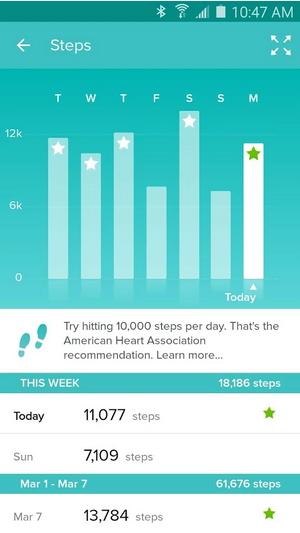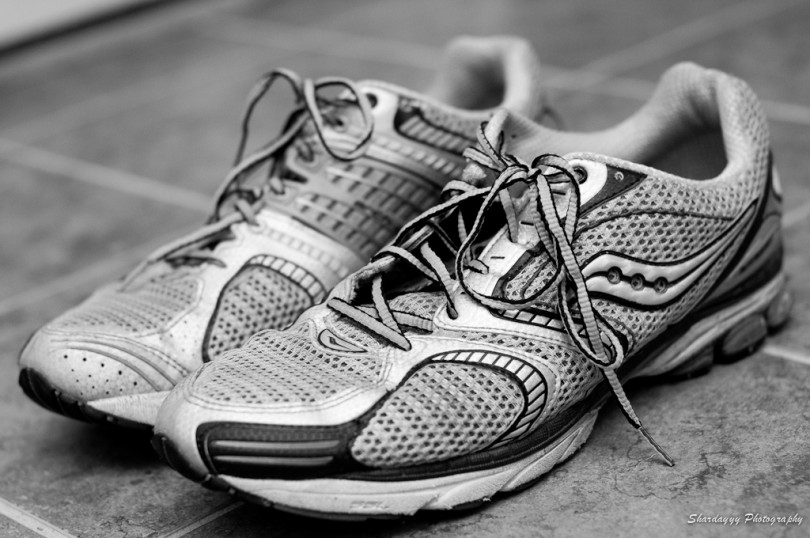aNewDomain — My mother and my sister have matching Fitbits. Yes, seriously. My sister bought one and then bought one for our mother for Christmas last year. They both were interested in seeing how many steps they take on a regular day and also learning more about their sleep patterns so Fitbits fit the bill.
 Fitbit offers a variety of wearable fitness trackers that connect to your smartphone. A few quick steps to set it up and your Fitbit will track your steps and activity throughout the day. You can also use it to count calories, log your weight and record other health information. One of the primary reasons to purchase the device — in addition to tracking your steps and activity — is that it will track your sleep patterns.
Fitbit offers a variety of wearable fitness trackers that connect to your smartphone. A few quick steps to set it up and your Fitbit will track your steps and activity throughout the day. You can also use it to count calories, log your weight and record other health information. One of the primary reasons to purchase the device — in addition to tracking your steps and activity — is that it will track your sleep patterns.
There are dozens of others crowding the market but Fitbit is still the leading maker of fitness wristbands and wearable fitness trackers. This is a tricky time for fitness wearables, though. With more wearable tech moving from the fringes into the mainstream, tech that is designed solely for fitness is starting to wane in popularity.
Another uphill battle the fitness wearables companies need to fight is that people tend to stop using them after just a few months.
Both comfort and design are crucial to entice consumers to purchase your device — but they’re even more important if you want them to keep using the device over time.
An unofficial poll of the aNewDomain team yielded only two active Fitbit users. A few of our writers wish they had one, but several other members of our team are waiting to see what the expanded wearable market looks like as this year progresses. My wholly unscientific poll of my colleagues and my family yielded the following results.
Fitbit is easy to use and a great motivator — in the beginning.
 Sandy Berger is a fan of her Fitbit, primarily because of its accuracy and ease of use. She finds the device to be a great motivator. My mom also likes that she can peek at it periodically throughout the day to see how many steps she’s taken and decide if she wants to take an extra afternoon walk. Gina Smith used hers for a week. It helped motivate her to start a serious swimming program. But now that she’s working out daily again, she finds she doesn’t use it at all.
Sandy Berger is a fan of her Fitbit, primarily because of its accuracy and ease of use. She finds the device to be a great motivator. My mom also likes that she can peek at it periodically throughout the day to see how many steps she’s taken and decide if she wants to take an extra afternoon walk. Gina Smith used hers for a week. It helped motivate her to start a serious swimming program. But now that she’s working out daily again, she finds she doesn’t use it at all.
The sleep tracking is the best feature
My sister — the mother of a 21-month-old — finds the sleep tracking to be the most useful feature. She likes that she can wear the device and forget about it, then, the next morning, she can pull up the stats for how well she slept and how many times she got up during the night.
Fitbit has some accuracy challenges
Several staffers mentioned to me that, depending on your activity, Fitbit may or may not track your steps. If you’re wearing a Fitbit wristband and pushing a stroller or a shopping cart, the device doesn’t track your steps. Because the device uses the swinging of your arm as the marker to track your step, if you happen to be waving your arms around, it will often count those as steps even if you’re not walking. Perhaps it evens out in the end, but I know some folks were disappointed that the step counting wasn’t more accurate.
When you’re considering a new piece of tech and you write for a site like aNewDomain, you have the awesome benefit of getting an opinion from many tech-oriented minds.
Ant Pruitt, one of the buffest guys in tech, says that devices like the Fitbit are good for awareness, but there’s a catch. “Sadly, I see a lot of consumers equating “steps” to overall fitness. WRONG. There’s more to fitness than just steps. There’s also diet, amount of work/activity and amount of rest.
</soap_box>”
The Fitbit app is available free for Android on Google Play, Apple iOS and Windows Phone.
For aNewDomain, I’m Becket Morgan.
Screenshots: Becket Morgan courtesy of Google Play
Featured Image: Run Forest Run! by Shardayyy via Flickr















Seems we’re still in the first generation of wearables. I’ll wait.
I carry my cell around as a pedometer. BUT it’s a must that I continue to do some other exercise to help keep cario and blood pressure in check. Not to mention, other muscle strength and flexibility. Fitbit cannot do that. Too bad so many people think they’re “fit” for walking 20k steps in a day. Nice read and thx for the mention!
-RAP, II